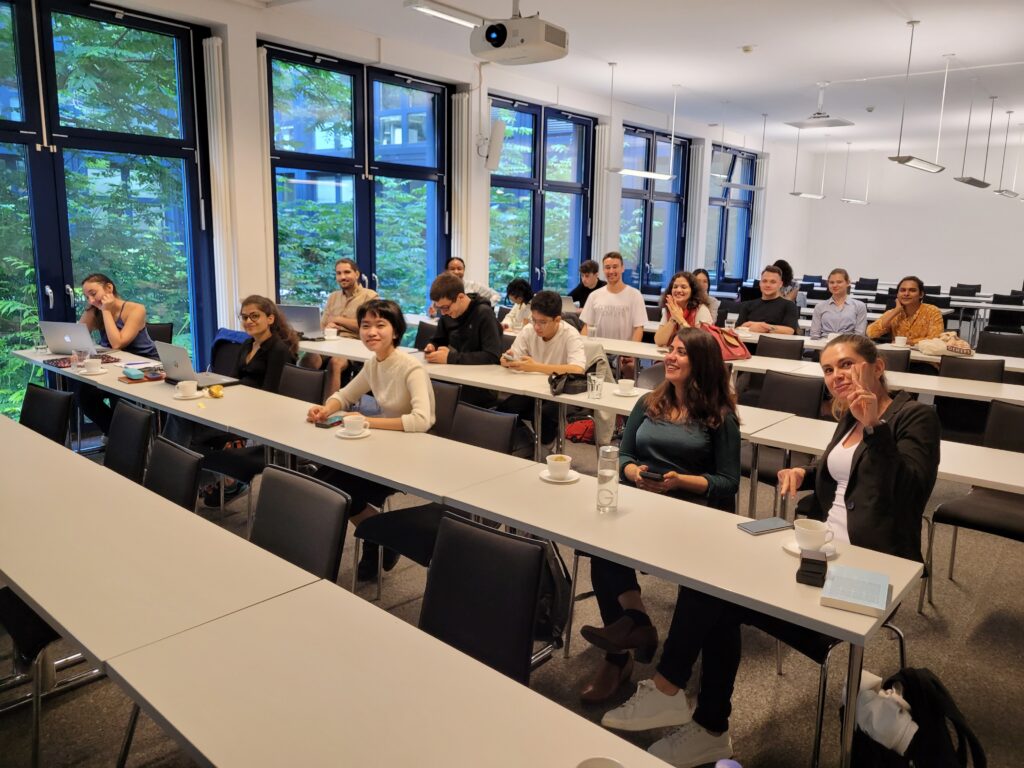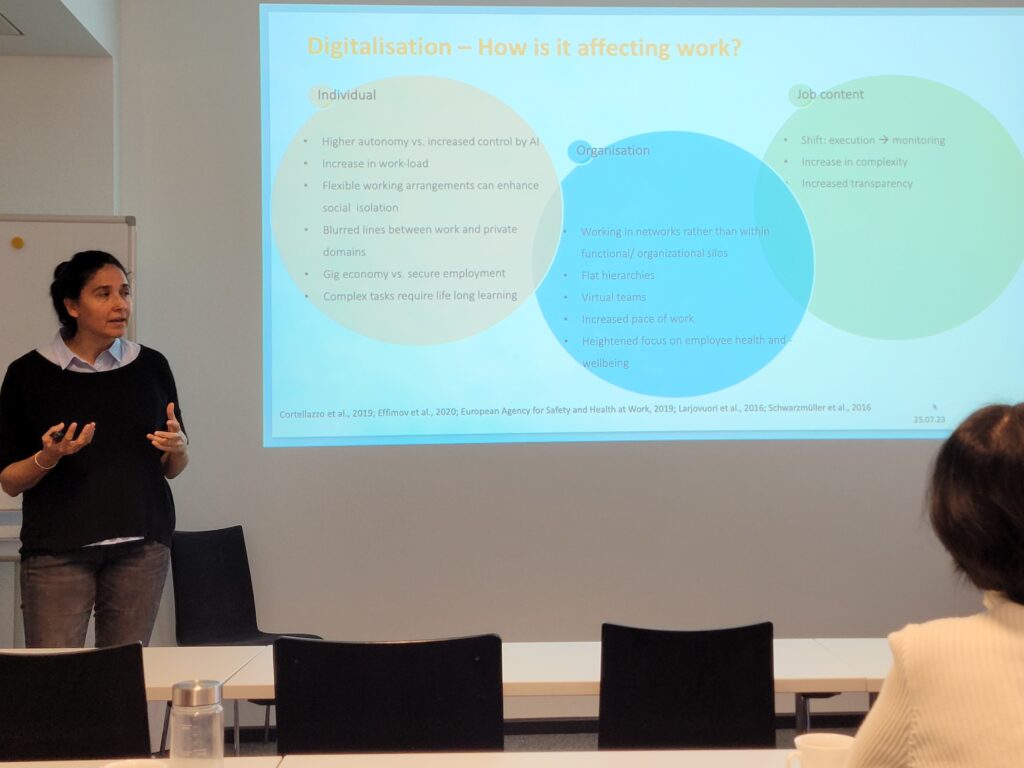By Talita Clerc, Ishika Avinash Shirke and Janine Kurz

The Transcultural Caravan Group was invited to another insightful meeting during our stay in Berlin, namely at the IPU, which was founded in 2009 as a private non-profit university. Here we were given a lecture by Professor Thomas Kühn about leadership in the context of our transcultural studies.
| Are we confronted with a tragic, insolvable dilemma? Must we produce sick people in order to have a healthy economy, or can we use our material resources, our inventions, our computers to serve the ends of man? Must individuals be passive and dependent in order to have strong and well-functioning organizations? – Erich Fromm |
In the age of digitalization, where technology shapes most of our existence, leadership is undergoing an intense evolution. Professor Thomas Kühn took us on a trip into the realm of digitalization’s impact on leadership, unraveling insights that challenge conventional existing paradigms. As we from the Transcultural Caravan embarked on this journey, Professor Kühn shed some light on how digitalization is reshaping leadership dynamics and fostering a new era of collaboration. He began with a quote from Erich Fromm to set the tone for the insights he was about to share with us.
During his lecture in a spacious hall decked out for all the participants in the Transcultural Caravan, he addressed various topics, such as traditional heroic leadership and the beginning of post-heroic philosophy exploration. Professor Kühn explored the idea that leadership is no longer confined to a solitary figure at the top. Instead, leadership has become a collective concept where collaboration and shared decision-making define success. This shift challenged hierarchical structures and encouraged the cultivation of diverse skills within organizations. Skills that are also of value and interest for a transcultural approach to leadership.
Digitalization was another key point that was highlighted, marked by the integration of technology into every facet of our lives, which is fundamentally changing the landscape of leadership. With the rise of artificial intelligence, automation, and data analytics, leaders are constantly faced with not just opportunities but also unique sets of challenges. Moreover, the shift towards remote work and virtual collaboration post Covid further emphasized the need for adaptable leadership styles.
Professor Kühn introduced a thought-provoking framework for understanding leadership through the lens of social identity. This perspective acknowledged the interplay between leadership and group dynamics, emphasizing context-sensitive approaches. By recognizing the unique identities of individuals within a collective, a leader can harness the power of diversity to drive innovation and achieve common goals.

As the lecture progressed, he further elaborated on the principles guiding effective leadership and how to create meaningful impact. Professor Kühn’s exploration of leadership culminated in “One of Us”, “Do it for Us”, “Craft a Sense of Us” and “Make Us Matter”.
In the pursuit of effective leadership, the Normative ABC as a concept was introduced to the Transcultural Caravan: this is a compass that guides identity at work, where A stands for Authenticity, B for belonging, and C for Control.
After a short break, we also looked at a qualitative study about leadership and discussed anonymized interviews, which challenged our views of different leadership styles, together with fellow researcher Amira Barrech. With intriguing questions and a sense of humor, she took over the remaining time we had at the IPU.

In a world where technology is driving change, Professor Thomas Kühn’s lecture offered the Transcultural Caravan a comprehensive roadmap for leadership to navigate the evolutionary digital landscape. Drawing insights from Erich Fromm’s philosophy, he presented a transformative perspective on leadership that embraces diversity, facilitates collaboration, and empowers individuals to thrive in the digital era. His words resonated with us, and we are sure that all of the participants will take them along their journey.
Special thanks to Professor Thomas Kühn, Amira Barrech, and IPU Berlin.
